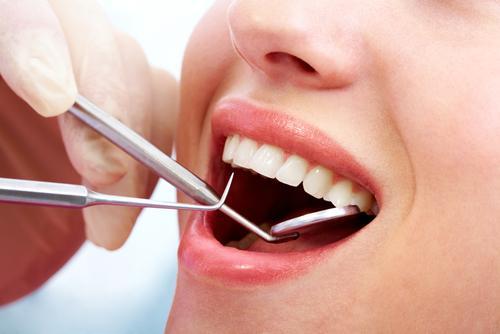How Dry Mouth Can Lead to Dental Decay
Dry mouth, commonly referred to as xerostomia, is a condition where the mouth is not kept wet due to a lack of saliva. This condition can be present briefly in individuals that are stressed or anxious, but when it persists, it can be a serious issue. With chronic dry mouth, patients experience difficulties eating, chewing and talking. This condition occurs when the salivary glands are not working properly. There are other medical conditions that can affect these glands, such as Parkinson’s Disease, diabetes and Sjogren’s syndrome. If you notice having a persistent dry mouth, contact a doctor or dentist immediately to determine the cause. If left untreated, it could lead to many other dental problems in the future. Make sure that you get the best dentist in Batavia IL to ensure maximum dental care.

The symptoms of dry mouth can vary per individual. Usually the symptoms consist of a dry and sticky feeling in the mouth, burning sensations in the mouth, cracked lips, a rough tongue, sores in the mouth and on the gums and difficulty chewing, tasting and speaking. If you experience any combination of these symptoms, consult a dentist as soon as possible. Saliva is an essential fluid. It plays a large role in maintaining healthy teeth and gums. By leaving dry mouth untreated, serious dental problems, including decay, can arise. Saliva also helps with the digestion of food, and makes it possible for us t be able to chew and swallow. Digestive problems may occur if dry mouth is not treated. Saliva is also an important factor in controlling bacteria and forms of fungi in the mouth. Without saliva, there is a high risk for infection, digestive problems and chronic tooth decay. There is also an increased risk of gingivitis and infections in the mouth, such as thrush.
Saliva is very important when it comes to healthy teeth and gums. Saliva rinses away food debris from the gums and teeth and neutralizes acids in the mouth that can damage the enamel on the teeth. If there is no saliva present, the teeth will begin to decay from the build up of plaque, food particles and acid. It is very important to seek treatment for dry mouth as son as symptoms are noticed. If you do have dry mouth, be sure to pay more attention to oral hygiene. Brush and floss more frequently to remove the food and bacteria that saliva would normally help with.
Dentists may prescribe a medication to produce more saliva. Salagen or Evoxac are the common medications prescribed. Aside from those, self-care will help immensely with the treatment and control of dry mouth. It is recommended that those who suffer with dry mouth drink plenty of water to keep the mouth moist. Sugar free candies and gum can help with the production of saliva. The chewing and sucking actions help the glands to produce saliva naturally. Reduce your intake of sugars while experiencing dry mouth. The sugar will cause teeth to decay faster. Try to eat soft foods that are not hot in temperature and moisten hard foods with gravy or broth if possible. Do not use mouthwashes or rinses that contain alcohol. This will cause your mouth to become drier. Alcohol and caffeine consumption should be limited.

Dry mouth is a serious issue that could lead to dental decay and infection if not properly managed. It is important to maintain good oral hygiene and make frequent visits to a dentist if you have dry mouth. It is important to monitor your teeth to make sure there are no signs of decay present. Consult with your dentist or doctor if you are unable to manage dry mouth. They will have numerous suggestions to make you more comfortable as well as preventing possible infection and tooth decay.
